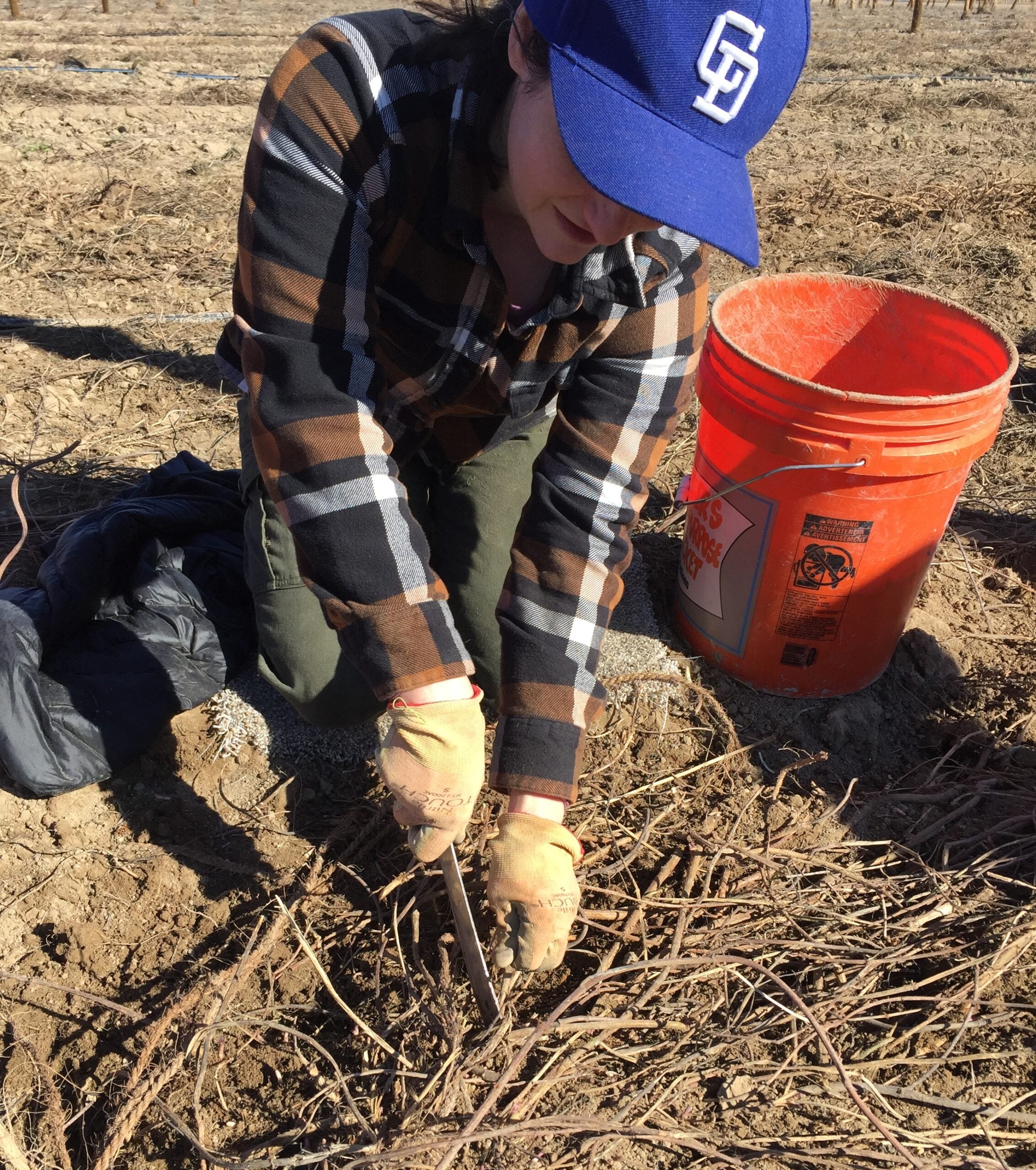
Standing among the vibrant stalls of Pike Place Market in Seattle, Rebecca Som Castellano discovered her calling: transforming small-scale agriculture and food systems into tools for justice.
“Agriculture and food systems offer unique opportunities for creating change,” she said. “I am drawn to them because they are a place where we can create social and environmental well-being.”
Now a professor of sociology and Interim Director for the Human Environment Systems group at Boise State, Som Castellano uses her personal background and professional expertise to uplift agricultural communities. Her roots in Washington state and early work with food systems laid the foundation for a career focused on addressing environmental and social justice challenges.
Som Castellano’s passion for rural sociology was ignited through hands-on experience in food systems. She managed farmers markets and advocated for small-scale agriculture in her Washington community, observing firsthand the connections between agriculture and justice. After earning her undergraduate degree from Western Washington University, she pursued a master’s in sociology at the University of Kentucky, where she studied power and policy dynamics in the national school lunch program. She later obtained her doctorate degree in rural sociology from The Ohio State University, examining inequality in alternative food systems. This academic trajectory ultimately brought her to Boise State, where she has built a career of meaningful research and collaboration.

Early on as a faculty member, Som Castellano was invited to join the Managing Idaho’s Landscapes for Ecosystem Services (MILES) Project, a National Science Foundation (NSF) EPSCoR initiative – known as the Established Program to Stimulate Competitive Research. She brought a social science perspective to an interdisciplinary team where she contributed to various projects, mentored undergraduate and graduate students, and supported a postdoctoral researcher, fostering connections with faculty across the state and opening doors to future collaborative projects. This experience set the stage for her involvement in GEM3 (Genes by Environment: Modeling, Mechanisms, and Mapping), another Idaho EPSCoR initiative, where she helped conduct a statewide survey and interviews and mentored student researchers.
While supporting the success of interdisciplinary research is a key aspect of her work, Som Castellano also leads her own projects, directly impacting the agricultural communities in Idaho. She is currently wrapping up collaborative research with Treasure Valley farm workers, examining pesticide exposure and perception of. This project highlights her dedication to understanding and addressing the challenges faced by agricultural workers.
In another line of research, Som Castellano is also exploring farmland loss and protection across Treasure Valley, Magic Valley and Teton Valley. With her team, she investigates the dynamics of farmland protection policies and examines factors that influence whether farmers must sell their land and how they navigate the pressure of development and land use change.
“What tools are they able to use in order to withstand farmland loss?” These are the questions Som Castellano and her team are working to answer.

Beyond her research on farmland, Som Castellano works with Global Gardens, a Boise-based organization that supports farmers from refugee backgrounds. She examines the forms of knowledge these farmers bring to sustainable agriculture, as well as the challenges they face.
“One of the objectives of this project is to understand the forms of knowledge and sources of knowledge that farmers from refugee backgrounds have, to understand the challenges they face in engaging in sustainable agriculture and to understand the sources of support and forms of resilience they’re able to utilize in order to be successful in their farming,” Som Castellano said.
This research stems from an issue identified by Global Gardens: whether the organization fully recognizes the skills and expertise of the farmers they train. By addressing this question, the project aims to build stronger, more intentional connections with refugee farmers.
“This work matters because people from marginalized backgrounds often are more invisible,” Som Castellano says. “Farmers are often invisible, so anything we can do to raise awareness and raise the profile of people in our community who are growing food for us is valuable.”
As Rebecca Som Castellano continues her work in Idaho, her passion for justice and sustainable agriculture remains at the forefront. Whether mentoring students, collaborating with local organizations or advocating for farmland protection, she envisions a future where food systems thrive within communities that protect the land and the people who sustain it for generations to come.
This publication was made possible by the NSF Idaho EPSCoR Program and by the National Science Foundation under award number OIA-2242769.
- Written by Zenaida De La Cruz